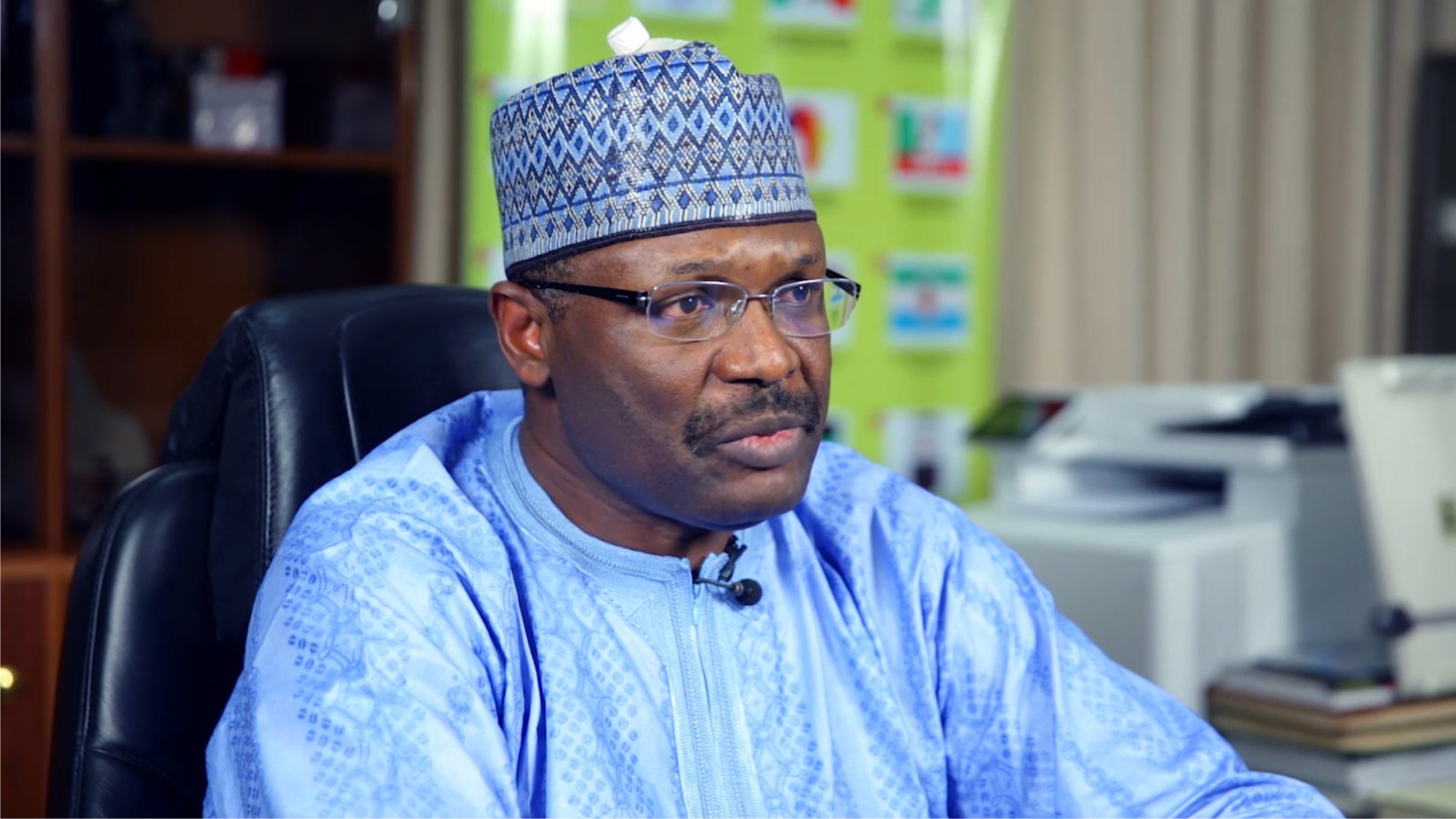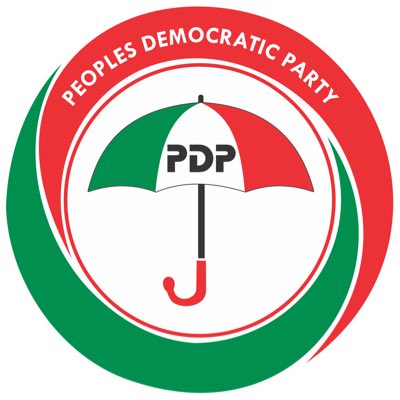Politics
INEC’s Report On 2019 General Elections

The Independent National Electoral Commission (INEC) on Friday in Abuja made virtual and public presentation of its ‘Report of the 2019 General Election’.
The commission also made public presentation of the ‘ Review of the 2019 General Election: Report of the Commission’s Retreats and Stakeholder Engagements’’.
INEC Chairman, Mahmood Yakubu, while presenting the two reports said that the ‘Report of the 2019 General Election’ has 13 Chapters covering major issues.
These according to him include challenges associated with the preparation and conduct of the election, lessons learnt and specific recommendations for addressing them.
Yakubu said that the second report “the Review of the 2019 General Election’’ contained 180 recommendations including recommendations for test running and adoption of e-voting as well as adoption of early/special voting for election duty and other related officials.
Other recommendations are:
Early presentation of proposed amendments to the electoral legal framework, which should be concluded at least 12 months to the next general election, to provide effective planning.
The creation of electoral Offences Commission and Tribunal with powers to arrest, investigate and prosecute electoral offenders.
Automation of the nomination process to facilitate the storage, access and retrieval of candidates’ data.
The commission’s consideration of sourcing of its ad hoc personnel from its pool of retired staff.
Delivery of all non-sensitive election materials to states and FCT offices 30 days to any election so as ensure proper audit and quality assurance.
The need to review the criteria for recruiting collation officers and returning officers.
Sourcing of Registration Area Camps (RAC) managers from the staff of the commission.
Improvement of the voter registration to accommodate online registration and printing of permanent voter cards on monthly basis instead of the current quarterly basis.
The report also recommended that the Nigerian Constitution should be amended to provide for stronger legislation against defection by elected members of the national and state houses of assembly from one party to another.
“Such defectors should automatically lose their seats except in the case of merger of two or more parties,’’ it said.
The report recommended that funding of political parties from budgetary allocation should be restored.
It, however, said that this should not be tied to the election campaigns but for the purpose of maintaining infrastructural facilities and membership registration.
The recommendations, according to Yakubu, either require administrative action by the commission or amendments to strengthen the existing electoral legal framework by the National Assembly.
“Some of the recommendations that require administrative action by INEC are already being implemented resulting in improved management of the electoral process as seen in the recent off-cycle Governorship elections in Edo and Ondo States.
“We are similarly engaging with the National Assembly on aspects of the recommendations that require legislative action.’’
Yakubu noted that the strength of any public institution lay in its ability to ask critical questions, review its processes, strengthen its procedures for better service delivery and engage with stakeholders.
“It is my hope that making the two reports public will promote a better understanding of the issues and challenges associated with the conduct of the 2019 General Election and as important resource materials for research.
“It is my hope that it will serve as the promotion of a broader national discourse on the necessary reforms required for the continued delivery of peaceful, free, fair, credible, inclusive and safe elections in Nigeria.’’
Yakubu assured Nigerians that the hard copies of the two reports would be widely disseminated while soft copies would be uploaded on the commission’s website on Monday next week.
The INEC National Commissioner in-charge of Electoral Operations and Logistics Committee, Prof. Okechwukwu Ibeanu said that the two documents covered the chronicled works of INEC, views of the commission and those of stakeholders on the 2019 general elections.
Ibeanu said that in drafting the document INEC was guided by a number of principles including openness driven by a genuine consultation, sound knowledge informed by good science and good collaboration based on partnership.
He said that the reports revealed five key lessons including the fact that election could not rise above the structure and the infrastructure of the society.
“It is the same roads washed off that the commission has to use to conduct elections. It is the same airlines that run late that we have to use.
“The second lesson is that trust is at the heart of every election and that is why the commission has placed a lot of emphasis on openness and transparency in building trust.’’
He said that the reports also revealed that elections are too serious to be left in the hands of 30,000 election manager alone.
He added that the report also revealed that while INEC played key roles in the conduct of elections, the actions of other stakeholders including CSOs, security agencies and media were also important in determining the quality of the election.
He said that while technology in election had also become inevitable, it was not the end, as the use of technology in an election without trust would complicate matters.
Mr Hermann Thiel, the International Foundation for Electoral Systems (IFES) Country Director for Nigeria, said that the reports represented an institution willing to reflect on its processes, learn from them and improve on the process.
Thiel said that the development in the 2020 U.S. elections revealed that elections processes around the world were faced with challenges.
“Every country in the world is going through the processes. The world in changing, technology is being introduced.
“New processes and principles that were not there in the last decades were being introduced and they are presenting challenges to elections around the world and each election authority around the world has to learn.’’
Thiel added that one of the ways to learn was to look at what others had done, adding that the reports would be of great benefits to INEC and other electoral bodies around the world.
The Electoral Administration Expert for the European Centre for Electoral Support (ECES), Mr Manji Wilson commended INEC’s innovations implemented toward improving the country’s electoral system.
Wilson expressed hope that the lessons learnt from previous elections documented in the reports would contribute to meaningful and improve processes in the next electoral cycles in Nigeria.
Niger Delta
PDP Declares Edo Airline’s Plan As Misplaced Priority

News
Oji Clears Air On Appointment Of 15 Special Advisers By Fubara

The Special Adviser on Political Affairs to the Rivers State Governor, Dr. Darlington Oji, has disclosed that about 15 Special Advisers to the governor were duly approved by the Rivers State House of Assembly before the current political crisis in the State.
Oji made the disclosure in a Television programme in Port Harcourt, recently, while reacting to issues surrounding appointments, the impeachment moves against the governor and his deputy, and allegations of financial mismanagement.
He clarified that the appointment of Special Advisers was carried out in strict compliance with constitutional provisions, and received the approval of the Rivers State House of Assembly under the leadership of the Speaker, Martins Amaewhule, before the crisis began.
According to the Special Adviser, the appointments did not require any further screening, countering claims that the governor violated due process in constituting his advisory team.
On the impeachment proceedings against Governor Siminalayi Fubara, and his deputy, Professor Ngozi Odu, Oji described the process as unfounded and lacking constitutional backing.
He said that several lawmakers who initially supported the impeachment move were now reconsidering their stance after discovering that the process had no legal basis.
Oji also attributed the impeachment plot to personal and political ambitions, saying it is not motivated by the interest or welfare of the people of Rivers State.
Speaking on the financial position of the State after the Emergency Rule, the Special Adviser disclosed that the governor met about ?600 billion in the state’s coffers upon assumption of office.
He explained that the availability of funds enabled the administration to continue governance smoothly without the need for a supplementary budget.
The governor’s aide also refuted allegations of financial mismanagement against the governor, and stressed that all allocations to lawmakers and constituency projects were transparently handled.
He maintained that the Fubara administration remained focused on development, stability, and good governance despite the political distractions in the State.
Oji expressed confidence that the impeachment moves would eventually be abandoned as legislators and the public become more informed, adding that the governor’s leadership has continued to reassure citizens and sustain political stability in the State.
King Onunwor
Politics
Rivers Political Crisis: PANDEF Urges Restraint, Mutual Forbearance

Accordingg to the statement, the Board and National Executive Committee of PANDEF, noted with very grave concern the recent spate of political developments in Rivers State.
“Regrettably, these developments have now degenerated into the decision of the Rivers State House of Assembly to commence impeachment proceedings against the governor and deputy governor.
“This is a deeply disturbing situation that demands urgent attention in order to forestall further escalation and breakdown of law and order.
“This concern is heightened by the critical importance and strategic centrality of Rivers to the Niger Delta region and to the broader socio-political stability and economic wellbeing of Nigeria as a whole”, the statement said.
The Forum called on all parties involved in the resurgent political imbroglio to sheathe their swords and embrace peace.
“This should be guided by the principles of give-and-take, dialogue, tolerance, and political equanimity.
“All stakeholders must place paramount importance on peace, development and the welfare of the people of Rivers.
“We must now focus squarely on good governance and development of the state,” the Forum said.
PANDEF commended President Bola Tinubu, the leadership of the All Progressives Congress (APC), respected elders of Rivers State, and other well-meaning Nigerians for their previous and ongoing efforts aimed at restoring peace and stability in the state.
-

 Niger Delta3 days ago
Niger Delta3 days agoPDP Declares Edo Airline’s Plan As Misplaced Priority
-

 Sports3 days ago
Sports3 days agoSimba open Nwabali talks
-

 Nation3 days ago
Nation3 days agoHoS Hails Fubara Over Provision of Accommodation for Permanent Secretaries
-

 News4 days ago
News4 days agoDon Lauds RSG, NECA On Job Fair
-
Niger Delta3 days ago
Stakeholders Task INC Aspirants On Dev … As ELECO Promises Transparent, Credible Polls
-
Niger Delta3 days ago
Students Protest Non-indigene Appointment As Rector in C’River
-

 Oil & Energy3 days ago
Oil & Energy3 days agoNUPRC Unveils Three-pillar Transformative Vision, Pledges Efficiency, Partnership
-
Nation3 days ago
Maternal Mortality: RSG Identifies 6 High Risk Local Government Areas

